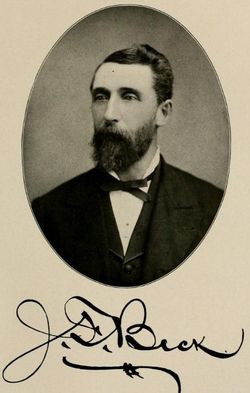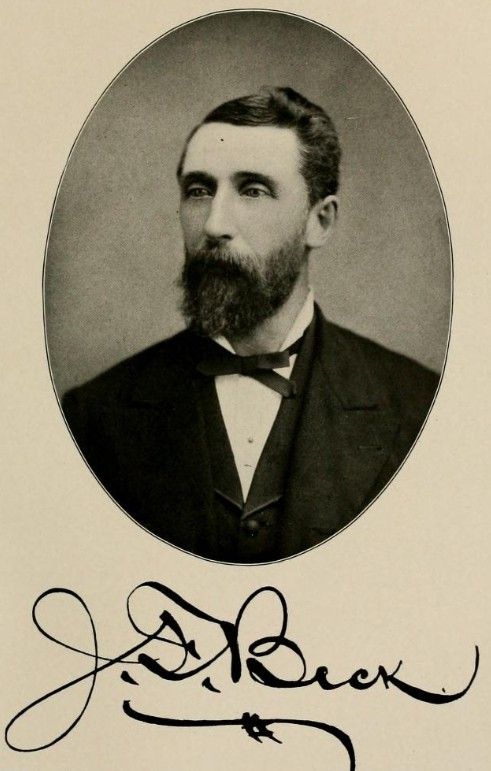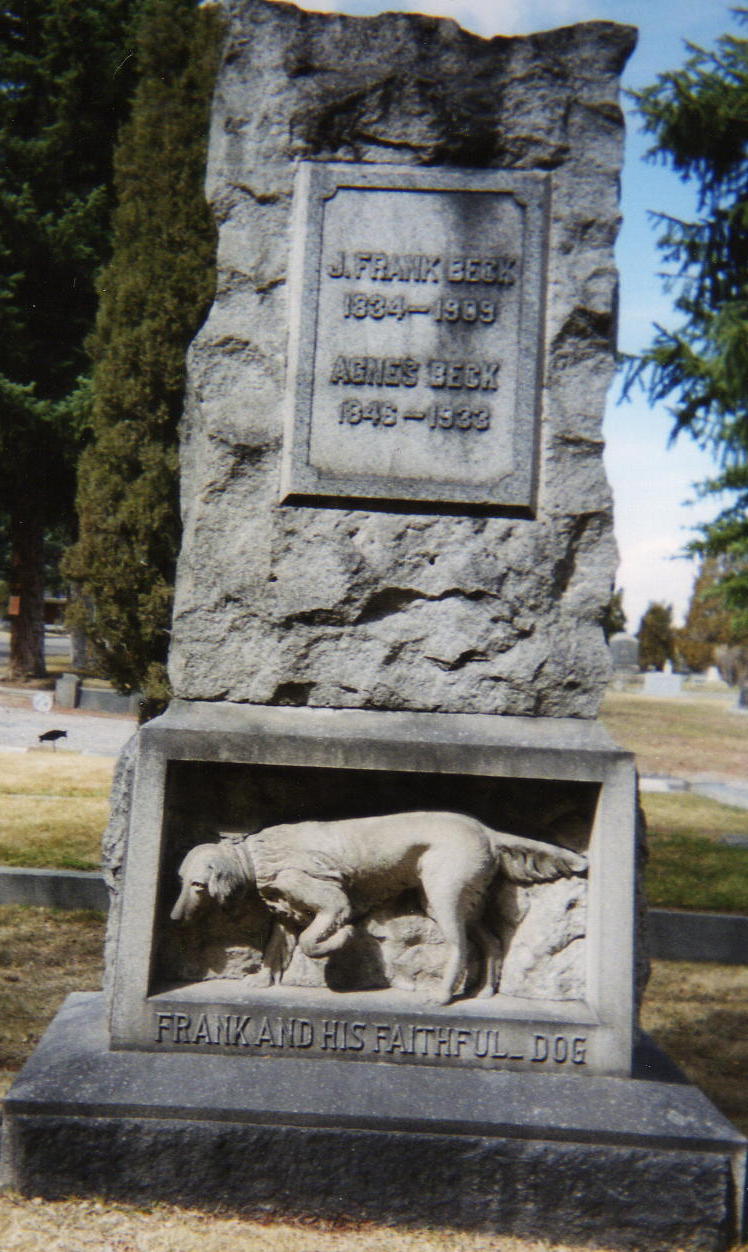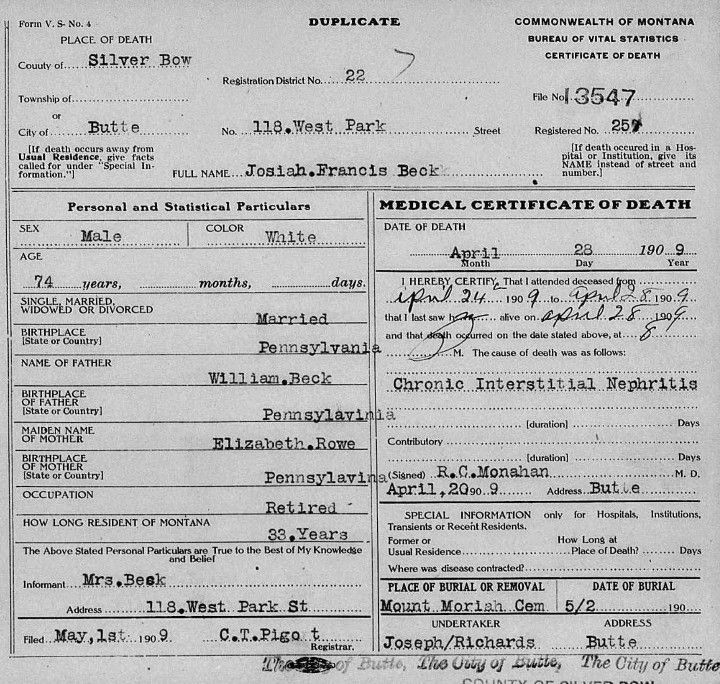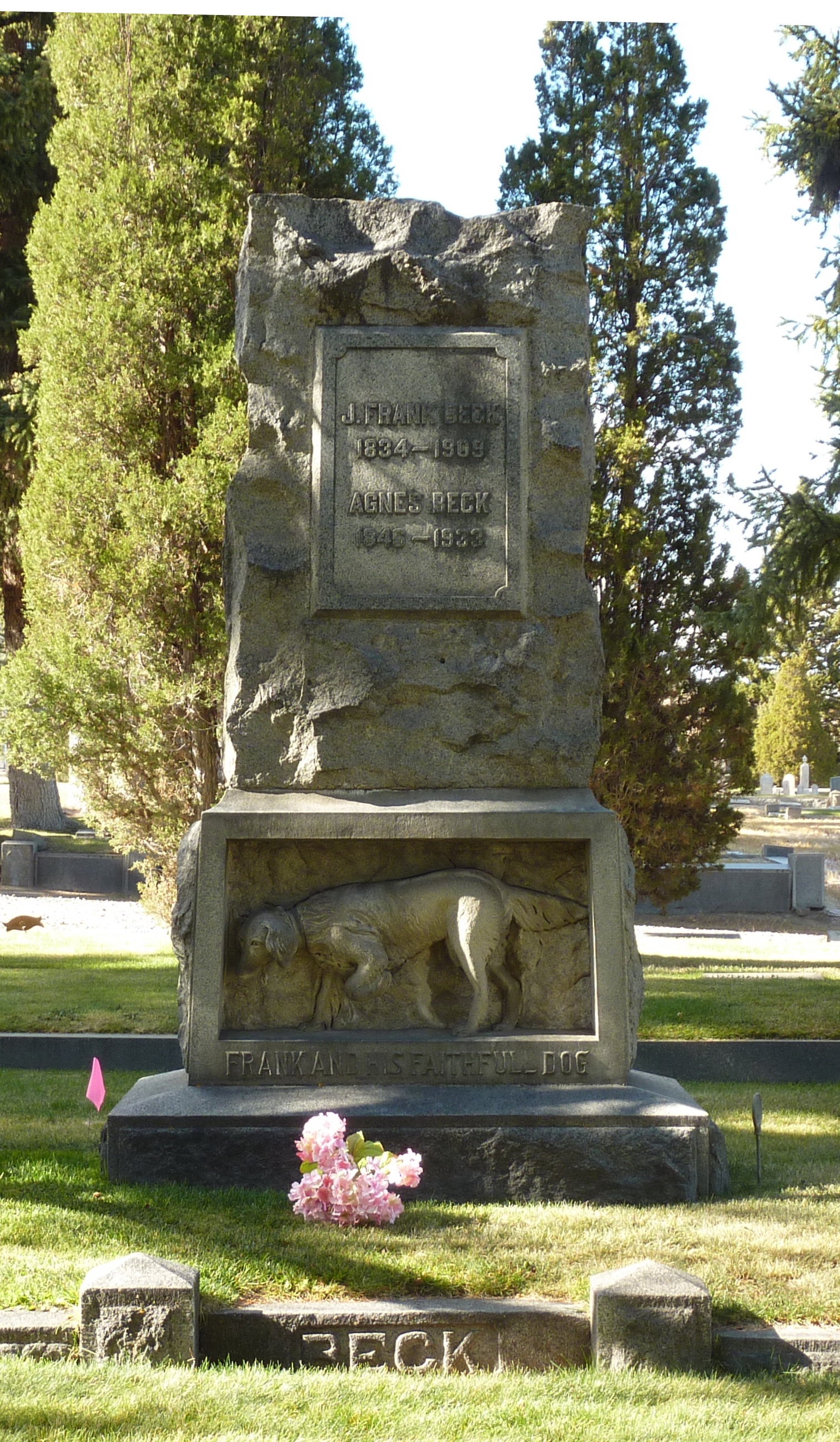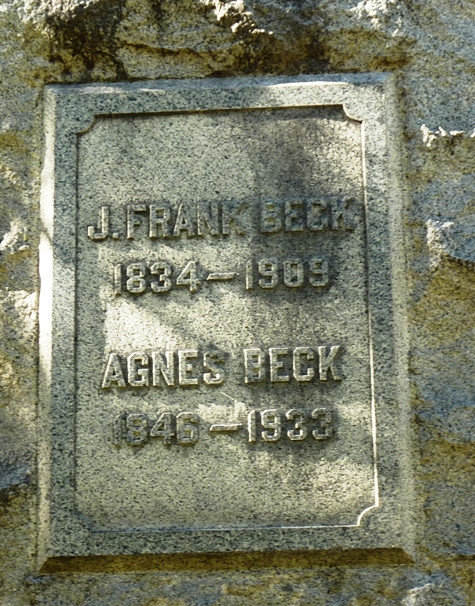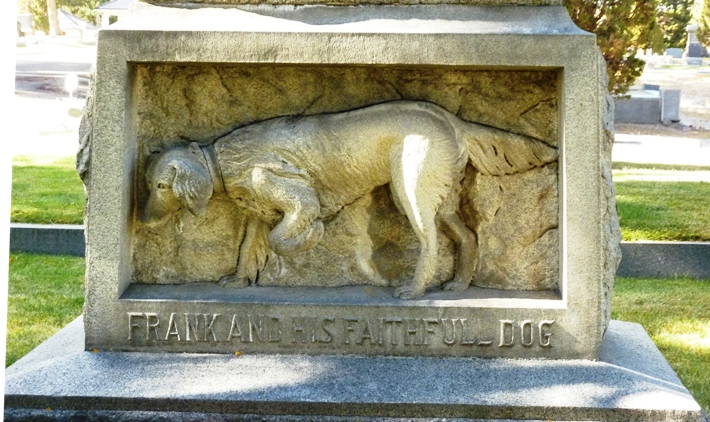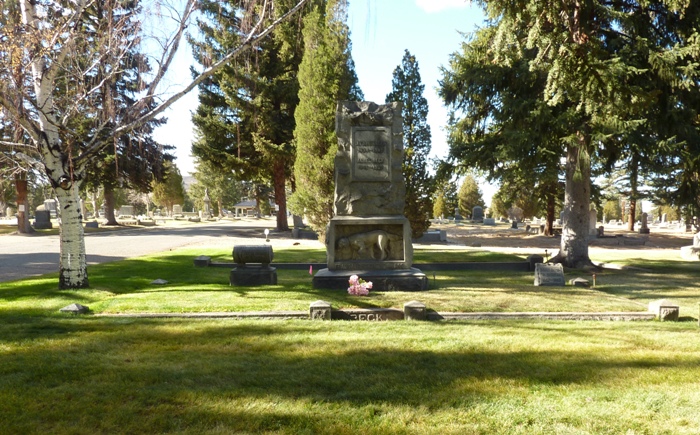A History of Montana, Volume II,' 1913, Helen Fitzgerald Sanders, page 928-9 (edited):
Josiah Francis Beck, one of the earliest settlers of Butte and one of its best known citizens and largest property holders, was born in Indiana, Indiana county, Pennsylvania, on December 16, 1834. He was of German ancestry, the German rendering of the family name being von Beck. His father, William Beck, was a prosperous farmer of Indiana county, and the Becks were among the earliest settlers in that section of the state. His mother, Elizabeth Rowe, was likewise descended from an old Pennsylvania family. Frank Beck, as he was better known to his friends in Butte, was reared to farm work, educated in the local schools, and graduated from Duff's Business College in Pittsburg in 1856. Beginning at age sixteen, he taught school in Kentucky from 1858 to 1861. With his only brother Daniel R. Beck, they left St. Louis for Pike's Peak, Colorado, arriving there in 1861, and soon afterward moved on to Central City and Russell Gulch. He engaged himself in mining, and later was employed at various other camps, continuing to prospect until the summer of 1863. He then went to Denver and was employed as night clerk in a hotel, where there occurred a fire, from which he barely escaped with his life, prompting himself to return east for a visit. In the spring of 1864 he outfitted at Omaha, and with two yoke of oxen and a huge wagon loaded with a supply of sugar, bacon and flour, he made his way back to his old camps in Colorado, selling his provisions on the way at fabulous prices. Hearing of the gold strike at Alder Gulch, he set out for Virginia City, reaching there on June 11, 1864. In December he came to Butte and spent the winter working claims with his brother and also with Thomas Hall, making a tidy profit. Silver Bow was then the county seat of the larger Deer Lodge county, and since he was the best penman in the vicinity, he was made deputy clerk and recorder. When the county seat was removed to Deer Lodge city in 1865, he went along. But in 1866 he resigned and returned to Butte, being among the first to locate a claim on Highland Gulch. Finding himself in debt, he gave up prospecting there and traveled to other points in the state, but in 1874 came back to Butte and worked at shaft building and other carpentry work. He invested in local real estate as much as he could, and by the time of his death, the value of his holdings had rendered him a wealthy man. When Butte organized a city government he was elected the first marshal, and later held the positions of deputy sheriff, deputy county treasurer and city treasurer, and still devoted time to his real estate interests. He maintained no set religious views, but he was a generous contributor to all sects and liberally supported all charitable enterprises. He was never known to withhold financial support from any worthy cause. He was affiliated with several fraternal organizations, including the Masons and the Knights of Pythias. He was president of the Rod and Gun Club of Butte, was particularly fond of dogs, of which he owned several valuable ones at all times, and found great pleasure in hunting and fishing. He died in Butte on April 28, 1909, and is buried in Mount Moriah cemetery. In the spring of 1877 he married Agnes Reid, the daughter of Matthew Reid of Michigan. They had no children. By the terms of his will, after bequests were paid, the remainder amounting to about $65,000 was made to the benefit of the Orphan's Home at Twin Bridges, Montana.
Contributor: RunninonMT (49509864)
A History of Montana, Volume II,' 1913, Helen Fitzgerald Sanders, page 928-9 (edited):
Josiah Francis Beck, one of the earliest settlers of Butte and one of its best known citizens and largest property holders, was born in Indiana, Indiana county, Pennsylvania, on December 16, 1834. He was of German ancestry, the German rendering of the family name being von Beck. His father, William Beck, was a prosperous farmer of Indiana county, and the Becks were among the earliest settlers in that section of the state. His mother, Elizabeth Rowe, was likewise descended from an old Pennsylvania family. Frank Beck, as he was better known to his friends in Butte, was reared to farm work, educated in the local schools, and graduated from Duff's Business College in Pittsburg in 1856. Beginning at age sixteen, he taught school in Kentucky from 1858 to 1861. With his only brother Daniel R. Beck, they left St. Louis for Pike's Peak, Colorado, arriving there in 1861, and soon afterward moved on to Central City and Russell Gulch. He engaged himself in mining, and later was employed at various other camps, continuing to prospect until the summer of 1863. He then went to Denver and was employed as night clerk in a hotel, where there occurred a fire, from which he barely escaped with his life, prompting himself to return east for a visit. In the spring of 1864 he outfitted at Omaha, and with two yoke of oxen and a huge wagon loaded with a supply of sugar, bacon and flour, he made his way back to his old camps in Colorado, selling his provisions on the way at fabulous prices. Hearing of the gold strike at Alder Gulch, he set out for Virginia City, reaching there on June 11, 1864. In December he came to Butte and spent the winter working claims with his brother and also with Thomas Hall, making a tidy profit. Silver Bow was then the county seat of the larger Deer Lodge county, and since he was the best penman in the vicinity, he was made deputy clerk and recorder. When the county seat was removed to Deer Lodge city in 1865, he went along. But in 1866 he resigned and returned to Butte, being among the first to locate a claim on Highland Gulch. Finding himself in debt, he gave up prospecting there and traveled to other points in the state, but in 1874 came back to Butte and worked at shaft building and other carpentry work. He invested in local real estate as much as he could, and by the time of his death, the value of his holdings had rendered him a wealthy man. When Butte organized a city government he was elected the first marshal, and later held the positions of deputy sheriff, deputy county treasurer and city treasurer, and still devoted time to his real estate interests. He maintained no set religious views, but he was a generous contributor to all sects and liberally supported all charitable enterprises. He was never known to withhold financial support from any worthy cause. He was affiliated with several fraternal organizations, including the Masons and the Knights of Pythias. He was president of the Rod and Gun Club of Butte, was particularly fond of dogs, of which he owned several valuable ones at all times, and found great pleasure in hunting and fishing. He died in Butte on April 28, 1909, and is buried in Mount Moriah cemetery. In the spring of 1877 he married Agnes Reid, the daughter of Matthew Reid of Michigan. They had no children. By the terms of his will, after bequests were paid, the remainder amounting to about $65,000 was made to the benefit of the Orphan's Home at Twin Bridges, Montana.
Contributor: RunninonMT (49509864)
Inscription
J. FRANK BECK
1834 - 1909
FRANK AND HIS FAITHFUL DOG
Family Members
Sponsored by Ancestry
Advertisement
Records on Ancestry
Sponsored by Ancestry
Advertisement
